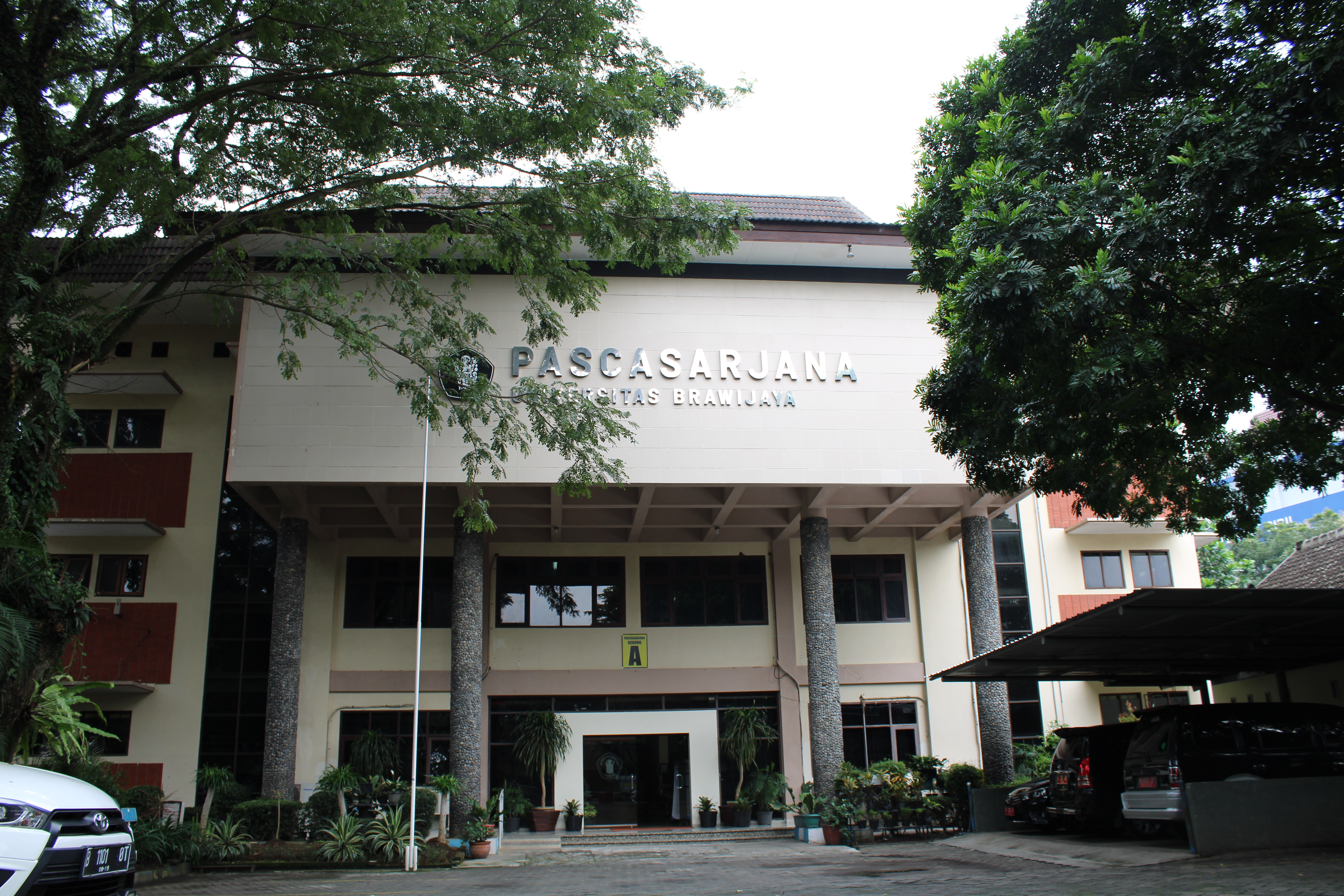Interdisciplinary Quest for Wisdom
History
Pioneered in 1981 in the form of a collaboration between Brawijaya University and Gajah Mada University to organize UGM-UNIBRAW Credit Collection Activities Program (KPK). This program aims to assist Unibraw in planning and implementing postgraduate education independently. In early 1982 a Decree of the Minister of Education and Culture was issued and two classes were opened for the Agricultural Socio-Economic Study Program and the Plant Science Study Program.
The academic year 1985/1986 opened the Soil and Water Management Study Program, followed by 1989 a class for Post-Harvest Technology Interest was opened and in 1990 it was opened for Animal Feed Interest, both of which were in the Plant Science Study Program, but a few years later both developed into their own study programs.
Since 27 February 1993 according to the Higher Education Decree No. 104, 105, 106 / DIKTI.Kep / 1993 The Postgraduate Program carries out activities independently with 3 study programs (Agricultural Economics, Plant Sciences and Soil and Water Management).
Since then PPSUB has grown with the addition of several study programs including: Agricultural Product Technology Study Program; Animal Science Study Program; Management Study Program; Administration Science Study Program; Biomedical Study Program; Reproductive Biology Study Program; and PS. Water Resources Engineering.
Since the 1998/1999 academic year, PPSUB has started to hold S3 Agricultural Sciences, and the Masters have grown to 12 study programs. In its development until 2005/2006 PPSUB has had 20 master study programs and 5 doctoral programs.
The development achieved by PPSUB did not come suddenly. Starting from a handful of students with personal study costs or looking for breakthrough scholarships (ADB Loan, IAEUP, Student Affairs, URGE, BPPS) until 2006, Postgraduate students reached thousands of people.
Starting in the 2006/2007 academic year, based on the Brawijaya University Rector’s Decree No. 030 / SK / 2006 dated 27 February 2006, the management of the Postgraduate Program in the field of monodisciplinary studies is organized by the Faculties, while the interdisciplinary study program is held regularly at PPSUB. As of September 1, 2006, all study programs have been carried out directly by the Faculty, except for the study programs under the Faculty of Engineering and Medicine, which are still transitioning so that they are still being held at PPSUB.
After the transition period was deemed sufficient, in the even semester of the 2008/2009 Academic Year, Early February 2009 the Monodisciplinary Study Program under the direction of the Faculty of Engineering and the Faculty of Medicine was finally managed directly at their respective Faculties. Since then, the history of the management of the Universitas Brawijaya Postgraduate Program has started a new chapter where what is managed under PPSUB is specifically for interdisciplinary Study Programs.
In the odd semester of the 2010/2011 Academic Year, PPSUB has 3 Masters Study Programs and 1 Doctoral Study Program, namely: Master Program in Environmental Resource Management (PSL), Masters Program in Women’s Studies (PMKW), Master Program for Archipelago Insights and National Defense (Wasantanas) and the Doctoral Program in Environmental and Development Studies (PDKLP).
Based on Government Regulation Number 108 of 2021 concerning State Universities Legal Entities, University of Brawijaya which was later reduced to Regulation of the Chancellor of Universitas Brawijaya Number 93 of 2021 concerning Organization and Work Procedures of Elements Under the Rector, PPSUB changed its name to Postgraduate School, hereinafter referred to as SPUB. SPUB is an educational organization for masters and doctoral programs in multidisciplinary, interdisciplinary and transdisciplinary fields of science.
In 2021, SPUB has 3 Masters Study Programs, 1 Doctoral Study Program and 1 Doctoral interest, namely: Master Program in Environmental Resource Management and Development (PSLP), Masters Program in Women’s Studies (PMKW), Master Program for National Defense Insights (Wasantanas), Environmental Science Doctoral Program (PDIL) and Doctor of Law Program with an Interest in Resilience Studies.

